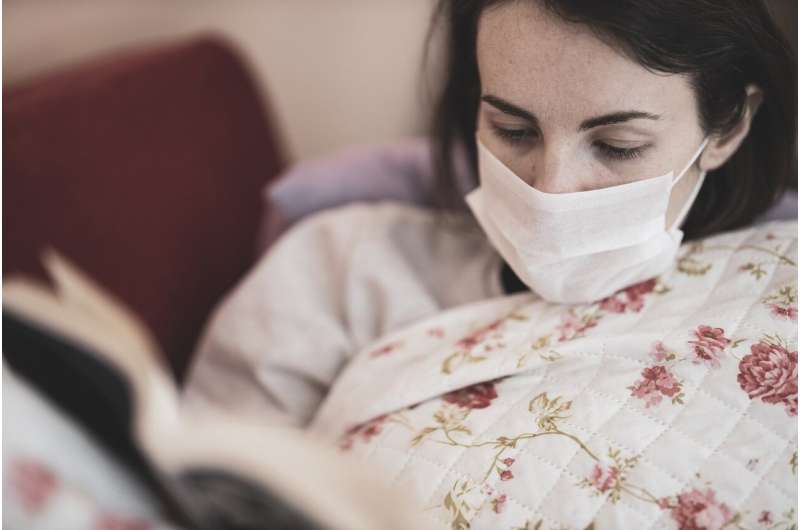This article has been reviewed according to Science X's editorial process and policies. Editors have highlighted the following attributes while ensuring the content's credibility:
fact-checked
peer-reviewed publication
trusted source
proofread
Study sheds light on factors that may predispose some COVID patients to recover more slowly

Early in the pandemic, many people who had SARS-CoV-2 infection or COVID-19 began to report that they couldn't shake off their symptoms even after a month or more—unusually long for a viral infection of the upper respiratory tract—or developed new, persistent symptoms soon after the infection cleared.
Although it's still not clear what causes post-COVID-19 conditions or "long COVID" (symptoms and conditions that develop, linger, or reoccur weeks or months after SARS-CoV-2 infection), a new study by researchers at Columbia University Vagelos College of Physicians and Surgeons confirms the high burden of long COVID and sheds light on who's at greatest risk.
The study is titled, "Epidemiologic Features of Recovery from SARS-CoV-2 Infection." It was published online June 17 in JAMA Network Open.
The study found that people with a milder infection—including those who were vaccinated against SARS-CoV-2 and those who were infected with an omicron variant—were more likely to recover quickly.
Recovery time was similar for subsequent infections.
"Our study underscores the important role that vaccination against COVID has played, not just in reducing the severity of an infection but also in reducing the risk of long COVID," says Elizabeth C. Oelsner, the study's lead author and the Herbert Irving Associate Professor of Medicine.
The study involved over 4,700 participants from the Collaborative Cohort of Cohorts for COVID 19 Research(C4R), who were asked to report their time to recovery after infection with SARS-CoV-2.
The study found that, between 2020 and early 2023, the median recovery time after SARS-CoV2-infection was 20 days, and more than one in five adults did not recover within three months.
Women and adults with pre-pandemic cardiovascular disease were less likely to recover within three months. Other pre-pandemic health conditions—including chronic kidney disease, diabetes, asthma, chronic lung disease, depressive symptoms, and a history of smoking—were linked to longer recovery times, but these associations were no longer significant after accounting for sex, cardiovascular disease, vaccination, and variant exposure.
"Although studies have suggested that many patients with long COVID experience mental health challenges, we did not find that depressive symptoms prior to SARS-CoV-2 infection were a major risk factor for long COVID."
Other groups disproportionately affected by long COVID were American Indian and Alaska Native participants, in whom severe infections and longer recovery times were more common.
"Our study clearly establishes that long COVID posed a substantial personal and societal burden," says Oelsner. "By identifying who was likely to have experienced a lengthy recovery, we have a better understanding of who should be involved in ongoing studies of how to lessen or prevent the long-term effects of SARS-CoV-2 infection."
More information: Epidemiological Features of Recovery from SARS-CoV-2 Infection, JAMA Network Open (2024). doi:10.1001/jamanetworkopen.2024.17440 , jamanetwork.com/journals/jaman … /fullarticle/2820087




















